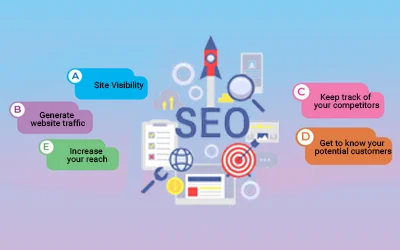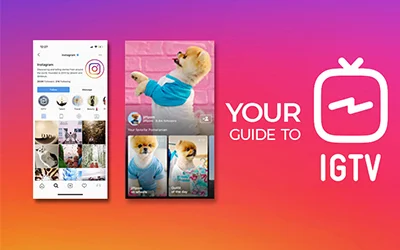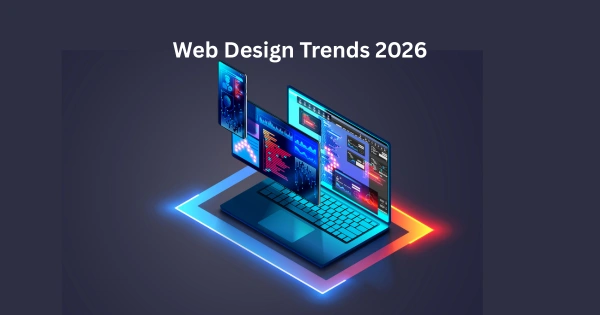Google Gemini represents the Google major shift in next-generation artificial intelligence that can capture and render multiple information formats such as text, images, audio, and video.
There has been much speculation surrounding what is Google Gemini, what it could do now, and what Google plans to take it to in the future. This step-by-step guide covers everything you need to know about Google Gemini.
Introduction to Google Gemini
Google Gemini is a suite of AI models, apps, and services developed by Google's leading AI research teams at DeepMind and Google Research. It consists of three main AI models designed to be "multimodal" and understand different types of data:
- Gemini Ultra - The flagship Gemini model aimed at advanced capabilities.
- Gemini Pro - A smaller "lite" version of Gemini meant for general purposes.
- Gemini Nano - A distilled-down model that can run on mobile devices.
This focus on multimodality sets Gemini apart from previous Google AI projects like LaMDA, which could only comprehend and generate text. The ability to work with images, audio, video, and other non-text formats opens up new possibilities in how Gemini can be applied.
In addition to the models themselves, Google has introduced Gemini apps and services to make Gemini more accessible to users. However, it's important to understand the underlying Gemini models and consumer-facing apps are separate products with different capabilities.
Detailed Overview of the Core Gemini Models
To better understand what makes Google Gemini unique, let's take a deeper look at each of the three main models in the Gemini family.
Gemini Ultra
- Gemini Ultra is the most advanced and powerful model developed under Project Gemini.
- According to Google, Gemini Ultra exceeds the capabilities of all other existing AI systems based on internal benchmark testing.
- Some specific use cases highlighted for Gemini Ultra include helping students solve complex physics problems step-by-step, summarizing key information from research papers, and updating charts with new data.
- Gemini Ultra has the underlying capability to generate images. However, this functionality has not yet been incorporated into any of the Gemini consumer apps and services. Google states Gemini Ultra can generate images "natively" without needing an external generator system.
- Access to Gemini Ultra currently requires an AI Premium subscription to Google One cloud storage, priced at $20 per month. The model also powers the backend of the Gemini apps for Premium subscribers.
- Developers can integrate directly with Gemini Ultra via API through Google's Vertex AI platform for creating and deploying machine learning models.
Gemini Pro
- Gemini Pro is meant to be an upgrade and replacement for Google's previous LaMDA natural language model.
- According to Google, Gemini Pro demonstrates stronger performance on language understanding tasks like summarization, open-ended writing, and brainstorming compared to models like GPT-3.
- Early benchmark testing indicated Gemini Pro exhibits slightly better reasoning skills compared to the latest GPT-3.5 version from OpenAI. However, real-world user testing revealed flaws in Gemini Pro's abilities - for example, getting basic facts wrong or providing poor and illogical coding suggestions.
- To address these issues, Google recently launched Gemini 1.5 Pro in preview. This updated model can process a vastly larger amount of data - up to 700,000 words versus just 30,000 words for the original Gemini Pro version.
- Gemini Pro is currently available for developers to integrate via API in Google's Vertex AI platform and AI Studio developer environment. Access is free during the preview period, but Google plans to charge based on usage after the general release.
Gemini Nano
- Gemini Nano is a lightweight and streamlined version of Gemini Pro and Ultra designed specifically to run on consumer mobile devices like smartphones.
- Gemini Nano allows certain AI capabilities to happen directly on a user's phone without needing to connect to the internet to function without sending data to external servers.
- So far, Google has showcased Gemini Nano in action powering two key features on its latest Pixel 8 Pro smartphone: summarization in the Recorder audio transcription app and Smart Replies in the Gboard on-screen keyboard. The new Google Assistant Google word coach can use Gemini Nano to provide real-time help in improving spoken vocabulary and pronunciation.
- Given its ability to run smoothly on mobile hardware, we can expect more on-device applications of Gemini Nano on phones, smartwatches, smart home devices, and more in the future.
Must Read about Google's Best AI Video Generator "Lumiere"
How Gemini Compares to AI like ChatGPT
Google has made bold claims that its Gemini models exceed the performance of key competitors like OpenAI's GPT-3 and GPT-3.5 on certain internal benchmark tests. However, it's difficult to independently validate these claims or directly compare the real-world usefulness of Google Gemini AI versus other AI programming languages like ChatGPT. Some key considerations:
- While benchmark tests are useful for quantifying AI capabilities, they may not fully reflect how models perform on actual tasks and applications. Real-world testing by independent researchers and users often reveals limitations not apparent in benchmarks.
- Gemini and ChatGPT have fundamentally different modalities, which are difficult to compare directly. Gemini is multimodal and able to process images, audio, etc. ChatGPT currently focuses solely on text comprehension and generation.
- More rigorous, transparent, and apples-to-apples comparisons between Gemini and systems like GPT-4 and Claude will be needed to evaluate better where Gemini truly stands in relation to other state-of-the-art AI.
Read Our Blog on ChatGPT Optimizing Language Models for Dialogue
Where You Can Currently Access and Use Google Gemini
Google is gradually rolling out access to Gemini across more of its consumer and developer products. Here are some of the main ways you can start interacting with Google Gemini models right now:
- Gemini Apps - Try queries with Gemini Pro and Ultra via Google's web and mobile Gemini apps. Gemini Ultra requires upgrading to the Premium subscription plan.
- Vertex AI Platform - Gemini Pro and Ultra are directly accessible via API for developers to integrate into their own applications. This Google Gemini AI login is free during the preview period.
- Pixel Phone - Built-in features showcasing Gemini Nano's on-device capabilities, like summarization and Smart Replies, are now available on the latest Pixel 8 Pro.
- Developer Tools - Google has incorporated Gemini into its tooling for developers - including Chrome DevTools and Firebase mobile development platform.
- Google Add Me to Search - Allows anyone to submit their personal website to be indexed by Google Search, providing broader access to Gemini.
Visit our previous blog to Find Best AI Websites to make your project work more creative and innovative.
The Future Possibilities and Challenges of Google Gemini
Gemini represents a major bet by Google on next-generation multimodal AI. If Google can successfully execute this vision, Gemini could enable some truly exciting new capabilities further down the road:
- Natural-sounding conversational agents powered by strong reasoning, logic, and knowledge capabilities for extended dialogues.
- Fluid, human-like analysis of information across text, images, voice, video, and potentially even VR environments.
- Automating data analysis, content generation, customer service queries, and many other business workflows by using Gemini's versatility.
- New on-device experiences using Gemini Nano as a form of ambient intelligence on phones, smartwatches, smart home devices, and more.
However, Google also faces major challenges and risks in translating its long-term aspirations for Gemini into tangible realities. The launch of Gemini apps and services was underwhelming, failing to meet the initial hype. Google will need to substantially improve real-world functionality, especially across modalities like image generation, where Gemini trails behind competitors.
There is also growing competition from ChatGPT-maker OpenAI, Tome AI and others working on similar multimodal AI systems. To lead the pack, Google must ensure Gemini's capabilities, branding, and go-to-market strategy keep pace with this active field of innovation.
The race is on to make the promise of artificial general intelligence like Gemini a practical reality. Google has laid ambitious foundations but still has work ahead to achieve Gemini's full potential as a versatile and radically useful AI.











